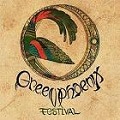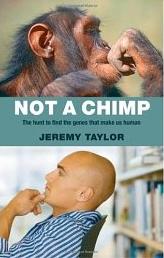Previous
Contributors to The Great Debate
Jeremy Taylor
Jeremy Taylor is a science documentary television producer
and director who has recently turned to writing science books.
Many of his films, in a career in television spanning nearly
thirty years, including many for BBC TV’s science flagship series
“Horizon”, deal with biology and evolution and go to the heart of
what it is that makes us human. These include
“Nice Guys Finish First” which explored, with Richard Dawkins,
how altruism can arise in a “selfish gene” world;
“Playing With Madness” which suggested that bipolar illness and
schizophrenia are the side-products of the rapid, recent and dramatic
evolution of the human brain; “Born That Way?”, with gay neuroscientist
Simon leVay, which looked at the biological roots of homosexuality;
“Women: The Inside Story”, which dealt with female infidelity as a
driver of sperm competition among human males; and “Mindreaders”
which explained our unique ability for “theory of mind” by which we
infer the mental states that drive ourselves and other individuals
and use those insights to empathize or deceive.
His first book,
Not A Chimp: The Hunt To Find The
Genes That Make Us Human
was published in hardback by Oxford University Press in 2009 and
was recently released in paperback. In it, he examines the prospects
of success for those myriad genome scientists who are trying to
define “humanness” by virtue of the genetic changes that have
occurred throughout the human genome over the last six million years,
through direct comparison of our genome with that of the chimpanzee
and the other great apes. Most importantly, he argues that many
scientists, conservationists and the science media have an
unfortunate tendency to hopelessly over-egg the apparent similarity
of humans and chimps with respect to their genetics and to many
shared aspects of their cognition, like empathy, symbolic communication,
learning and imitation, and tool manufacture and use.
Jeremy Taylor was on the panel of the debate:
Are
we masters of our own destiny?
as part of
The Green
Phoenix festival debate programme
on 20 August 2010.
Are
we masters of our own destiny?: Review by Jeremy Taylor
|
Jeremy says:
'Since the publication of Not A Chimp
I have been very active around the country giving talks to
branches of Cafe Scientifique and the Leeds and Manchester members
of the Salon movement. The main focus of these talks has been to
attack organisations like
the Great Ape Project,
who argue that apes should be granted a form of human rights
to expedite safeguarding their future in the wild and to
prevent their abuse and exploitation in captivity.
'These campaigners maintain that we should extend rights to apes
because of their extreme proximity to humans in terms of genes
and cognition. However, I argue that the best available scientific
evidence we have so far suggests that these claims amount to little
more than narcissistic anthropomorphism masquerading as science.
Can, and should, apes be re-branded as persons?
Are they moral entities? In what sense could an ape appreciate
that it has rights? How could it defend them? And how could it
understand that rights come with duties and obligations?
That they are part of a social contract?
'The concept of personhood is unique to humans and has benefited
heavily from recent work in genetics and neuroscience that is
beginning to provide us with important clues to the nature of
human consciousness, language, morality, and sense of self and
others by uncovering a number of subtle changes to our genomes
and brains that separate the haves - us, from the have-nots -
the rest of the animal kingdom. I believe these changes have
provided us with a flawed, but by-and-large workable,
illusion that we are independent actors with free will and
in control of our own destinies. But, in reality, our brains have
“made up their minds” before we know it, and processes of
self-deception may have evolved the better to allow us to deceive others.'
|
Top of page
|
Books by Jeremy Taylor
Not a Chimp: The hunt to find the genes that make us human
Are we just dressed up chimps? Are
chimps so like humans that they should
be granted human rights? Chimpanzees
are our closest genetic cousins. But that
frequently quoted difference of 1.6% in
our genes is misleading, says Jeremy
Taylor. Drawing on the latest research
Taylor shows that the picture is proving
more complicated than we imagined.
Chimps are smart, but so are crows. Yes,
we should protect chimps, like all wildlife.
But let’s not pretend that with a bit of
training they can use language, or that
they can think as much as we do. They
may be our nearest relations, but
chimps aren’t us.
Top of page
|
cr rolex day date rolex calibre 2836 2813 mens m128238 0081 genuinely tough developing also running standard is going to be look deliver the results also long-term longevity the protection.reddit nr rolex day date m128239 0007 36mm mens stainless steel automatic to ensure its outstanding quality and extraordinary legend of the service life.
|






